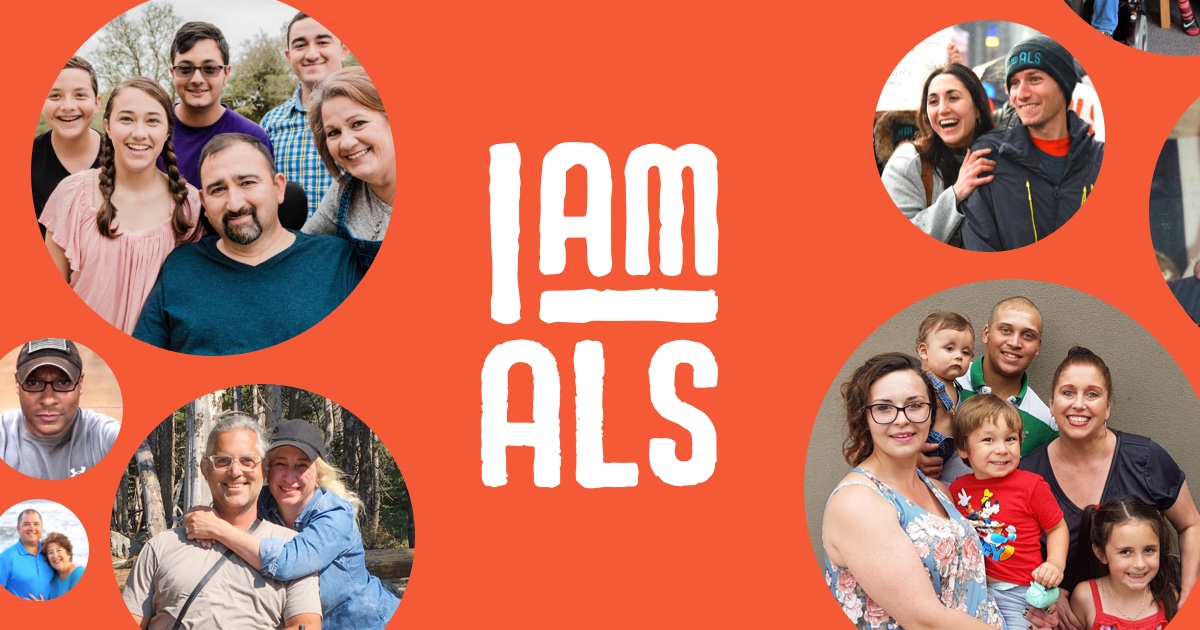I AM ALS signs onto letter asking President Biden to establish Office of Caregiver Health
Read the full letter:
June 20, 2024
President Joseph R. Biden
The White House
1600 Pennsylvania Ave, NW
Washington, DC 20500
Dear President Biden:
There are 53 million American family caregivers providing care to someone who is aging, ill, or disabled. Family caregivers provide an estimated economic value of $600 billion in unpaid care a year.1 As a champion for caregivers throughout your career, you know well how critical this invisible frontline of our healthcare system is for the health and economic strength of our nation.
The 167 undersigned organizations represent family caregivers, individuals with disabilities and chronic illnesses and conditions and the providers who care for them and understand their essential role. We greatly appreciate your accomplishments for family caregivers, including your Executive Order on Increasing Access to High-Quality Care and Supporting Caregivers. As we move beyond its one-year anniversary, we need to build upon that historic action and maximize the existing caregiver resources and programs within the federal government with the creation of an Office of Caregiver Health.
To elevate and focus unprecedented federal representation, investment, and coordination of caregiver support across federal agencies, the late former First Lady Rosalynn Carter believed that the establishment of a new Office of Caregiver Health at the Department of Health and Human Services would ensure that family caregivers are represented in health policy, regulation, program, and budget negotiations across HHS. A centralized office can dismantle silos that are barriers to progress by creating ways to consider the universal needs of caregivers, regardless of their care recipient’s condition or payor.
Caregivers experience disproportionate physical, emotional, and financial strain and social isolation because of their caregiving responsibilities. Caregivers span every generation from youth to elderly, come from all backgrounds and lived experiences, and care for individuals with a wide array of conditions covered by varying payors.
Despite a wide array of caregiver support programs across the federal government, our experience clearly indicates that caregivers struggle daily to navigate the systems, fail to qualify for the types of benefits they seek, and often find that the resources available to them are not sufficient to meet their specific needs.
Caregivers must be recognized as a population rather than segmenting them by the conditions or diagnosis of care recipients. Moreover, we should redesign structures and systems to proactively center caregiver health and wellbeing, and not to add to their caregiving tasks by requiring caregivers to self identify or seek out supports without assistance.
The Recognize, Assist, Include, Support, and Engage (RAISE) Family Caregivers Act of 2017 National Strategy to Support Family Caregivers released in 2022 highlights the need for policy coordination and prioritization. The RAISE Strategy provides long overdue visibility on commitments to caregivers yet includes 345 commitments across 15 agencies. Further, the FY 2024 Department of Health and Human Services Budget does not have funds at the required scale for cross-agency implementation.
The RAISE strategy provides great momentum to establish a federal Office of Caregiver Health. We envision the office working in close collaboration with the Assistant Secretary for Aging at the ACL and other agencies and departments to accelerate the strategy’s cross-sector implementation.
The office’s mission would be to advance the health and well-being of family caregivers across the nation through coordinating federal services, support, research, and education. Key functions of the office would include:
- Ensuring caregivers are understood and monitored as a population with their own needs.
- Ensuring that the needs of caregivers are considered in all federal programs and policies.
- Leveraging research and ensuring effective program evaluation and delivery across federal agencies to recommend policy and regulatory reforms to mitigate and prevent adverse outcomes from caregiving.
Further, this office would define caregivers and assess their needs, identify all existing programs and policies that may impact them and coordinate access to a streamlined system with a centralized resource entry point to locate the appropriate supports and resources.
We are extremely appreciative of the many investments in family caregivers made by your Administration. At the April 11 White House Caregiver Convening, Neera Tanden said “We are so close, so close, to transforming our economy and transforming families and communities by finally stepping up and giving them the support they need but more importantly the support they deserve from their government”. We agree and strongly believe they need and deserve an Office of Caregiver Health. We look forward to your action on this request to improve the efficiency and effectiveness of federal programs for family caregivers. Thank you in advance for your consideration of taking immediate action to establish an Office of Caregiver Health within the Office of the Secretary at the Department of Health and Human Services.
For further information or questions, please contact Diana Felner, Senior Director of Caregiver and Mental Health Policy at the Rosalynn Carter Institute for Caregivers, at diana@rosalynncarter.org.
Sincerely,
Rosalynn Carter Institute for Caregivers
The Carter Center
AARP
ACCSES – The Voice of Disability Service Providers
ADvancing States
Alliance for Aging Research
ALS Network
ALS Northwest
Alter
Alzheimer’s Association
Alzheimer’s Foundation of America
Alzheimer’s Impact Movement
Alzheimer’s Los Angeles
Alzheimer’s Orange County
Alzheimer’s San Diego
Alzheimer’s Tennessee
American Academy of Addiction Psychiatry American Academy of Child and Adolescent Psychiatry American Academy of Pediatrics
American Association for Marriage and Family Therapy American Association of Caregiving Youth American Association of Nurse Practitioners (AANP) American Brain Coalition
American College of Rheumatology
American Foundation for Suicide Prevention American Geriatrics Society
American Kidney Fund
American Mental Health Counselors Association American Parkinson Disease Association
American Psychiatric Association
Amyloidosis Support Groups Inc.
Angelman Syndrome Foundation
Anxiety and Depression Association of America Arthritis Foundation
Association of American Indian Physicians Association of Maternal & Child Health Programs Asthma and Allergy Foundation of America Autism Society of America
Autism Speaks
BAGS-Being a Grandparent Support
Barth Syndrome Foundation
Benjamin Rose Institute on Aging
Biomarker Collaborative
Blue Star Families
Brain Injury Association of America
CancerCare
Cancer Support Community
Caregiver Action Network
Caring Across Generations
CaringKind
Center for Health and Social Care Integration at RUSH Center for Healthy Aging, Nevada
Center for the Advanced Study of Aging Services
Center to Advance Palliative Care
Cerebral Palsy Foundation
Child Neurology Foundation
Children and Adults with Attention-Deficit/Hyperactivity Disorder Christopher & Dana Reeve Foundation
CLOVES Syndrome Community
Clusterbusters, Inc
Coalition of Wisconsin Aging and Health Groups
Coalition to Transform Advanced Care (CTAC)
Creutzfeldt-Jakob Disease Foundation, Inc.
CurePSP
Cure VCP Disease
DEFEAT MSA ALLIANCE, DEFEAT MULTIPLE SYSTEM ATROPHY ALLIANCE DEFEAT MSA AWARENESS SHOE
Dementia Alliance of North Carolina
Dementia Society of America
Dravet Syndrome Foundation
Dreamsickle Kids Foundation
Duke Health
Dystonia Medical Research Foundation
Easterseals, Inc.
Elizabeth Dole Foundation
Emory University
Epilepsy Foundation
EveryLife Foundation for Rare Diseases
Exon 20 Group
Family Caregiver Alliance
Fanconi Cancer Foundation
Foundation for Angelman Syndrome Therapeutics
FOXG1 Research Foundation
Gaucher Community Alliance
Georgia First
Georgia Parent Support Network
Gerontological Advanced Practice Nurses Association (GAPNA) Gerontological Society of America
Glut1 Deficiency Foundation
Guide Dog Foundation
Hawaii Family Caregiver Coalition
HealthyWomen
Hemophilia Federation of America
Hilarity for Charity
Huntington’s Disease Society of America
Hydrocephalus Association
I AM ALS
ICAN International Cancer Advocacy Network Immune Deficiency Foundation
Inseparable
International Association for Indigenous Aging International Autoimmune Encephalitis Society International OCD Foundation
ITSAN
Justice in Aging
Latino Alzheimer’s & Memory Disorders Alliance LEAD Coalition (Leaders Engaged on Alzheimer’s Disease) Live Like Lou Foundation
Lupus and Allied Diseases Association, Inc.
Meadows Mental Health Policy Institute
MET Crusaders
Mission MSA
MSA UNITED INTERNATIONAL RESEARCH CONSORTIUM Myasthenia Gravis Association
Myasthenia Gravis Foundation of America (MGFA) National Alliance for Caregiving
National Alliance for Hispanic Health
National Alliance on Mental Illness
National Association for Homecare & Hospice (NAHC) National Association of Social Workers
National Council for Mental Wellbeing
National Council on Aging
National Eating Disorders Association (NEDA) National Headache Foundation
National Health Council
National Hispanic Medical Association
National Kidney Foundation
National Minority Quality Forum
National Multiple Sclerosis Society
National Rehabilitation Research & Training Center on Family Support National Respite Coalition
National Task Group on Intellectual Disabilities and Dementia Practices Ohio Council for Cognitive Health
One Family Foundation
Organic Acidemia Association
PA Education Association
PDL1 Amplifieds
Parent Project Muscular Dystrophy
Parkinson’s Foundation
Prader-Willi Syndrome Association | USA
Prader Willi Florida Chapter
Prader-Willi Syndrome Association of Minnesota
Prader-Willi Syndrome Nebraska
Prevent Blindness
Reflex Sympathetic Dystrophy Syndrome Association (RSDSA) Remember The Girls
Schizophrenia & Psychosis Action Alliance
Society for Women’s Health Research
Spina Bifida Association
SYNGAP1 Foundation
Texas Prader-Willi Association
The ALS Association
The Association for Frontotemporal Degeneration
The Cute Syndrome Foundation
The Global Foundation for Peroxisomal Disorders
The Michael J. Fox Foundation for Parkinson’s Research The VEO-IBD Foundation
Tourette Association of America
Tragedy Assistance Program for Survivors (TAPS)
United Mitochondrial Disease Foundation
United MSD Foundation
United Spinal Association
UsAgainstAlzheimer’s
USAging
Utah Prader-Willi Syndrome Association
Voices of Alzheimer’s
Wounded Warrior Project
cc: The Honorable Xavier Becerra, Secretary, Department of Health and Human Services Neera Tanden, Assistant to the President and Domestic Policy Advisor

We will find cures for ALS. The only question is when. That answer depends on you.
Stay informed on I AM ALS’ progress and what you can do to help us make hope real.
